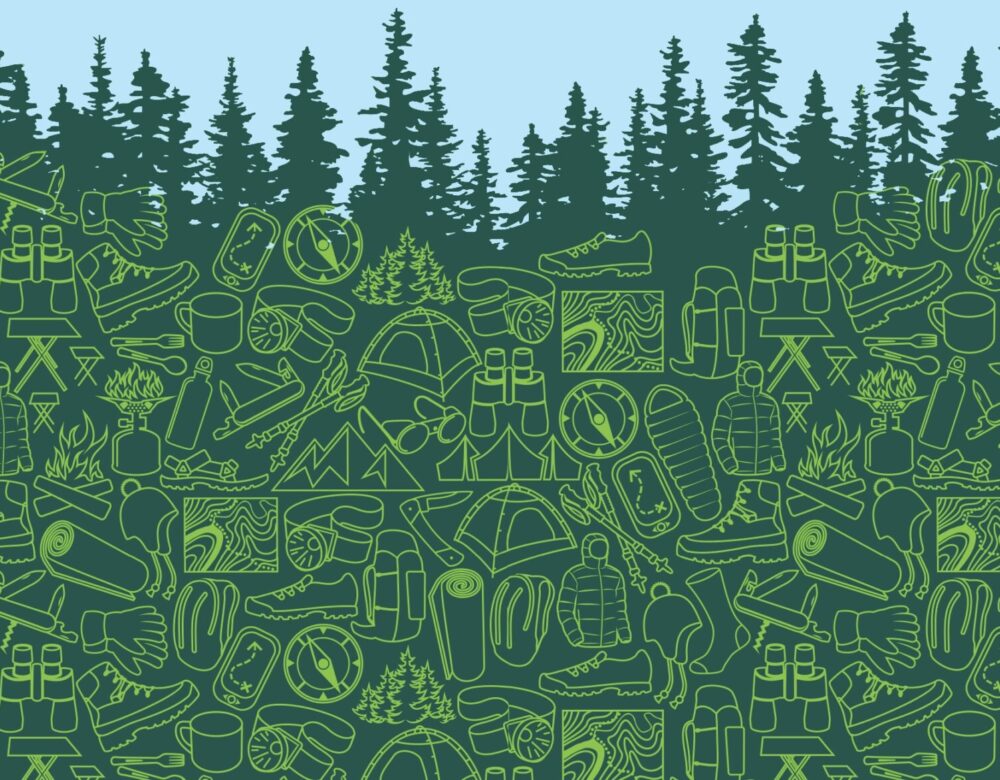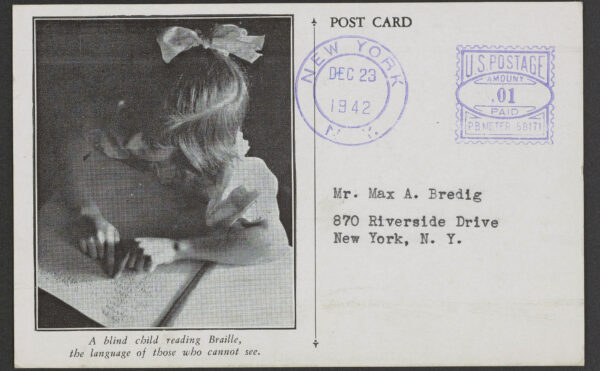Shopping All the Way to the Woods: Rachel Gross

Join us in person or online as historian Rachel Gross, author of Shopping All the Way to the Woods: How the Outdoor Industry Sold Nature to America, examines how our changing ideas about nature, commerce, and self-identity have shaped the outdoor goods market into a booming, multi-billion-dollar industry.
Gore-Tex and Do-It-Yourself Kits: How Synthetic Fibers Transformed the Outdoor Industry
Outdoorspeople flipping through the pages of popular magazines such as Backpacker or Field and Stream in the late 1970s would have seen page after page referencing a revolution in materials. This revolution was one of the most tangible ways American consumers experienced the massive technological shift in materials and designs in the late 20th century. There were innumerable changes, including internal frame packs, dome tents with telescoping aluminum tent poles, freeze-dried food, and more that changed how outdoor recreationists practiced their activities.
In popular memory, the equipment revolution was centered around synthetics but in the 1970s, do-it-yourself sewing kits were a far bigger phenomenon than Gore-Tex or its cousins. The intertwined relationship between one of the biggest trends of the equipment revolution at that time—which ultimately failed—and another trend that eventually surpassed it shows the surprising evolution of the corporate outdoors. In the balance to make outdoor gear effective and exclusive yet accessible and affordable, DIY kits and technical synthetics offered different benefits. Consumers loved or hated these new trends, showing how the outdoors becoming big business played out in the everyday lives of Americans.
Agenda
- 6pm–7pm | Lecture moderated by former Haas Curatorial Fellow Sheu
- 7pm-8pm | Reception
About Rachel Gross

Rachel S. Gross is a historian of the outdoor industry and author of Shopping All the Way to the Woods: How the Outdoor Industry Sold Nature to America (Yale University Press, 2024). She is an assistant professor of history at the University of Colorado Denver where she teaches U.S. environmental, business, and public history.
About This Event
“Gore-Tex and Do-It-Yourself Kits: How Synthetic Fibers Transformed the Outdoor Industry” is part of our Fellow in Focus and Science and Society series. Presented by the Beckman Center for the History of Chemistry, the Rohm and Haas Fellow in Focus Lecture series gives the Institute’s scholars an opportunity to present their work to a broad audience interested in history, science, and culture. Our Science and Society speaker series explores the history of science embedded in our everyday lives. We invite scientists, historians, policymakers, and educators for engaging, in-depth conversations that expand our perspectives.
Featured image: Detail of the cover of Shopping All the Way to the Woods: How the Outdoor Industry Sold Nature to America.
More events
Stories of Science: Last Bite of School Lunch
Join us in our museum EVERY SATURDAY for a family-friendly program that highlights strange and surprising stories from the history of science!
Othmer Library Tour
Curious about the other half of the Science History Institute? Step into the Othmer Library of Chemical History!
Stories of Science: Last Bite of School Lunch
Join us in our museum EVERY SATURDAY for a family-friendly program that highlights strange and surprising stories from the history of science!



